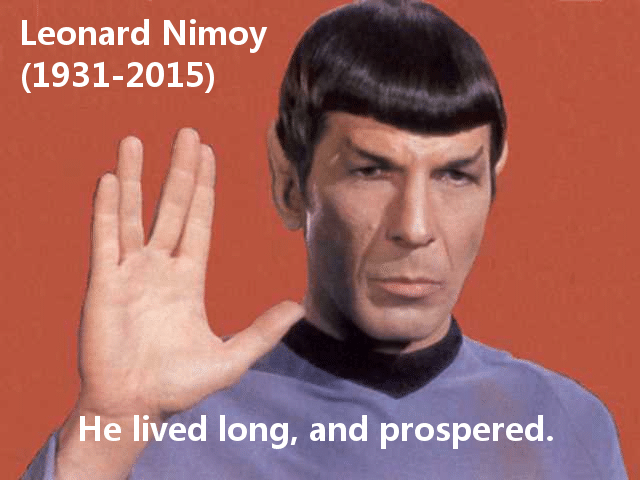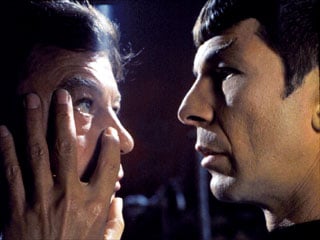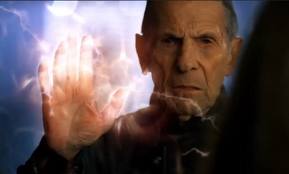
Leonard Nimoy passed away on February 27th, 2015, at the age of 83. He was William Bell in the TV series Fringe, and appeared in Mission Impossible (TV version), Get Smart, and even an episode of The Twilight Zone (for those born post 1990, it was not vampire fan-fic). He sang the Ballad of Bilbo Baggins, voiced the underrated holiday special The Halloween Tree, and narrated blockbuster empire-building game Civilization IV. But he’ll always be Mr. Spock.
Few actors ever become so identified with a single role. Few characters have ever been so iconic. Star Trek first aired nearly fifty years ago, before man ever set foot on the moon, and the first image of Leonard Nimoy that comes to mind is still Spock.
Kirk was a bit of a caricature. Bones never had the demeanor to carry a show. Spock was the dignified one, the only alien on an otherwise all human crew. He was the one who made the Federation more than just Future Earth. He was the representative of a logical, dispassionate people, while being half-human himself. He was the sounding board for Gene Roddenberry’s vision of what humanity could become. By questioning Kirk’s motives, he let the captain show what mankind was made of. By contrasting with McCoy, he showed the personality of his own people. The mind meld, the neck pinch, the green blood and the pon farr, Spock was the lens into the Federation beyond Earth in the Star Trek universe.
As Nimoy moved on in his career, he frequently reprised his role as Spock, coming back first for movies, then in cameo appearances in the spin-off and sequel series. In the time of Stark Trek: the Next Generation, he had risen to the rank of Ambassador. But in real life, he had held that rank for a long time. He was the intellectual, the one that geeky young fans identified with (even if many of them wanted to be Kirk). He carried an unimpeachable air of class and civility that said, “yes, I wore pointed ears on camera, and I’m proud of it.” He made it OK to be geeky. Instead of brushing his early work under the rug and moving on to more mainstream roles, he embraced it. He was one of our own.
He lived long, and prospered.



0 Comments